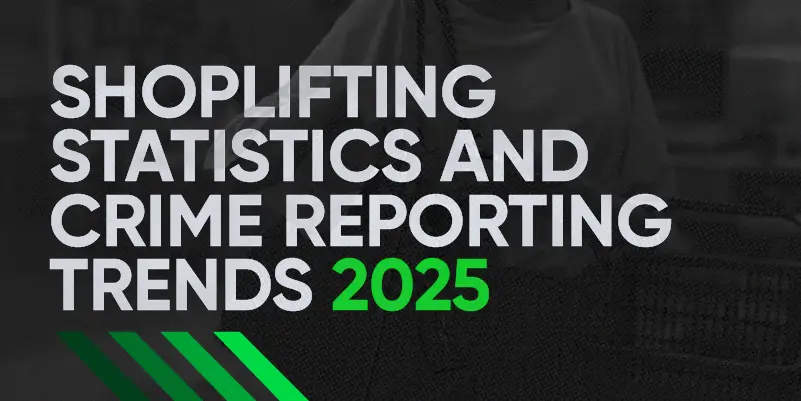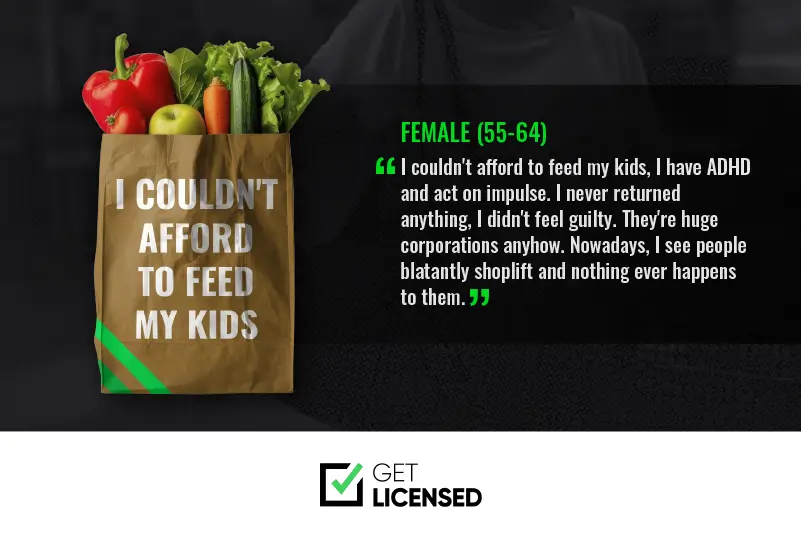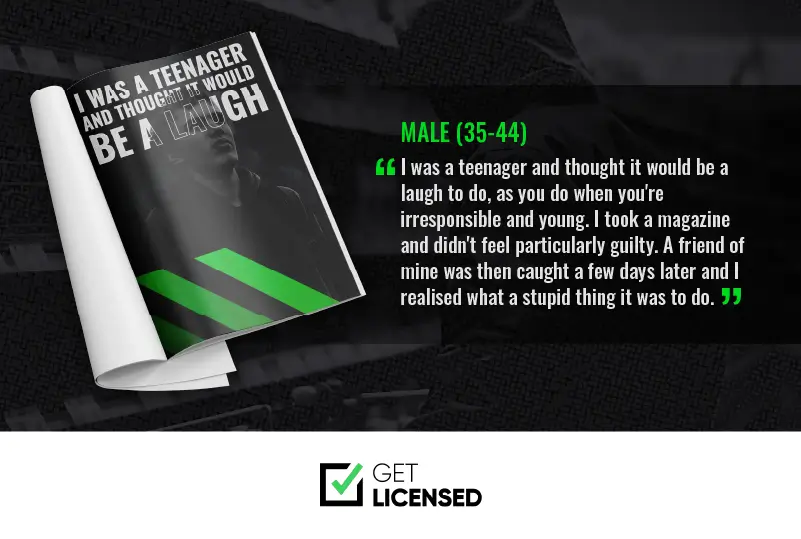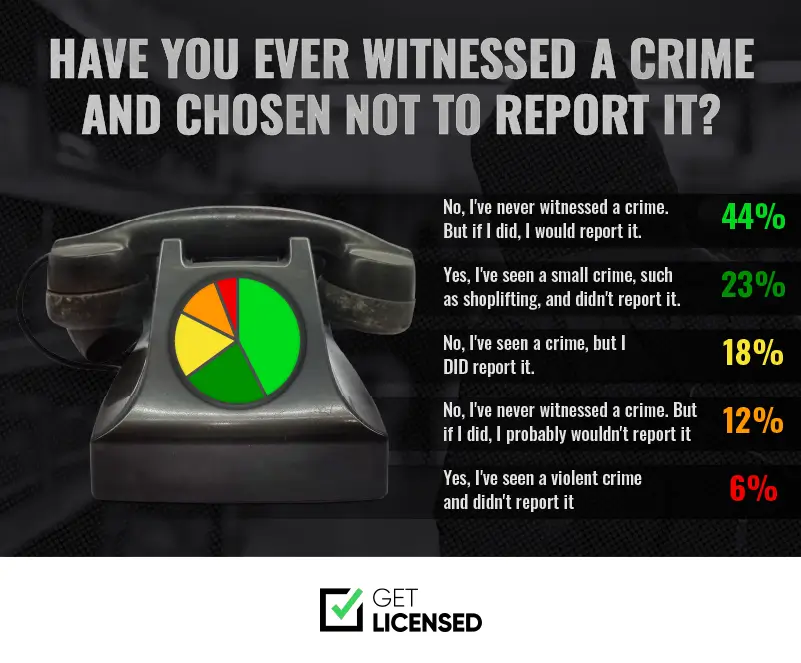UK Honesty Survey: Shoplifting & Crime Reporting Trends 2025

From accidental shoplifting to turning a blind eye to violent crime, our survey reveals just how complex the UK’s attitudes to crime really are. Shockingly, one in six Brits admit to accidentally shoplifting, while one in ten confess to stealing on purpose.
Given this, more people are asking when it is appropriate to step in and take action. In the UK, anyone can legally perform a citizen’s arrest if certain conditions are met. For security professionals, the SIA door supervisor training course is designed to teach exactly how to handle these situations safely and legally. But whether you work in security or just want to protect your community, it’s important to know what you are able to do legally.
Key Findings:
- Wallet finders in London are the most likely in the UK to take a wallet’s cash before handing it in (9%).
- If a wallet were on the floor, men are more likely than women to steal its monetary contents, irrespective of whether there was £1 or £1,000 inside.
- One in ten (10%) Brits admit they have purposely stolen from a shop.
- Manchester shoppers are the most secretive about their habits, with more than one in ten (11%) preferring not to say whether they’ve shoplifted.
- People aged 25-34 are the least likely to report a violent crime if they witnessed one.
- Of those who have never witnessed a crime, one in eight (12%) say they would ignore it if they did.
- More than four-fifths (84%) of respondents who admitted to accidentally shoplifting say they would hand a lost wallet to the authorities, a higher proportion than those who say they’ve never shoplifted (78%).


Three in Four Brits Would Hand Back a Lost Wallet, Even if it’s Full
Would you hand in a wallet packed with cash…or pocket it quietly? Our latest survey reveals the nation’s true colours regarding public honesty.
Here’s what we asked:
If you found a lost wallet, would you hand it in with or without money inside? Please select the option closest to what you think you would do in this situation.
| Survey Responses | |||
|---|---|---|---|
| I would hand in the item to the nearest security/police, regardless of whether money was inside or not | 76% | ||
| I would NOT hand in the item to the nearest security/police, regardless of money inside or not (I would leave it where it was found) | 6% | ||
| I would only hand it in if a large sum of money is inside (£100+) | 6% | ||
| I would keep any money (no matter the amount) and hand the wallet to security | 5% | ||
| I would take SOME money from the wallet (as a reward) and hand it in to the nearest security personnel | 2% | ||
| Other (please specify) | 4% | ||
Brits and Wallet Honesty: Who Would Hand It In?
When it comes to public honesty, most Brits think they would do the right thing. Over three-quarters (76%) say they would return a lost wallet, no matter if it’s empty or filled with cash.
Scots lead the way in good deeds, with almost 90% of these moral champions saying they would hand in a wallet. In Northern England, one in ten say they would only hand in the lost piece of property if it contained at least £100.
In a surprising twist, those who have accidentally shoplifted demonstrate a higher likelihood of returning lost wallets, 84% compared to 78% of those who claim never to have stolen.
Gender and Generational Gaps in Moral Choices
Men are more likely than women to pocket the money first (7% vs. 3%). You can also count on women (80%) to hand in lost wallets, no matter what, more than men (71%).
London: capital of dishonesty? Glasgow tops the UK public honesty rankings, as 92% of its residents would return a lost wallet. Meanwhile, nearly one in ten (9%) Londoners openly admit they'd help themselves to the cash.
Honesty clearly comes with age. Older people are more likely to return a lost wallet; 87% of those aged 65+ answered they would hand in the item, regardless of whether money was inside or not. This is compared to just 56% of people aged 18-24.
The Outliers: Going Beyond Just Handing It In
It’s not all bad, though. Over one in fifty (2%) people said they’d choose another option: find the owner themselves and hand back the wallet.
One in Ten Brits Admitted to Shoplifting Intentionally
Have you ever walked out of a store without paying? Whether intentional or accidental, our latest survey uncovers how often Brits find themselves leaving stores with unpaid items. Here’s what we asked:
Have you ever accidentally/intentionally shoplifted? Select all that apply.
| Survey Responses | |||
|---|---|---|---|
| Yes, intentionally | 10% | ||
| Yes, intentionally | 16% | ||
| No | 69% | ||
| Not sure | 5% | ||
| Prefer not to say | 2% | ||
Accidental shoplifting in the UK may be more common than you think. One in six (16%) people admit to having walked out of a store with unpaid items without realising.
Women are more likely than men to make this honest mistake (21% vs. 12%), while men are likelier to shoplift intentionally (11% vs 9%).
Motivations, Childhood Regret, and Moral Reflections
Over one in twenty (5%) Brits who have intentionally stolen did so while they were children. For some, this still weighs heavily on their minds, with one respondent saying, “I was just a kid and took a bag of penny sweets from the local shop. I did it because some of my friends did it, and I felt pressured. I felt bad about it and still think about it from time to time, but now I just see it as a part of growing up.”
Young adults aged 25-34 show the UK's strongest moral backbone. More than nine in 10 (95%) claim they've never intentionally stolen, making them the most honest age group surveyed.
Where It Happens the Most – Regional Trends
UK Shoplifting habits vary by location, as Leeds tops the list for accidental shoplifting at almost a quarter (23%), while Bristol and Cardiff share the title of the UK’s biggest intentional shoplifters. Nearly one in five (19%) residents admit to deliberately taking an item from a store without paying. While not every unpaid item results from bad intentions, there is a clear need for retail security measures.
Just 1% of people shoplifted out of necessity, while one in twenty-five (4%) did so due to a technology error, or not realising their child had put something in their bag. One shopper even happily walked out with an ironing board, unaware that it hadn’t been scanned.
One in Four Brits Admitted to Witnessing Minor Crimes Without Reporting Them
Would you speak up if you saw a crime or simply walk away? Let’s see what the people of the UK had to say.

Would Brits Report a Crime if They Saw One?
More than half of the respondents (56%) said they have never witnessed a crime, but over two-fifths (44%) claim they would report one if they did.
Almost one in four (23%) Brits admit they’ve witnessed minor crimes, such as shoplifting, and chose not to report them. Alarmingly, 6% say they’ve remained silent even after witnessing violent crimes.
Gender and Age Differences in Crime Reporting
Of those who have witnessed a crime, men are slightly more likely than women to report it (19% compared to 16%), with women less likely to come forward regardless of the severity.
Nearly three in five (58%) over-65s who have never witnessed a crime say they would report one if they did, demonstrating the impact of age.
Regional Trends and Repeat Reporter Reluctance
Regionally, the South East is the most open about not getting involved, while Northern England residents top the list for reporting crimes they have seen (22%). In Cardiff, 11% of locals who have witnessed a violent crime admit they did not take action, which is the highest proportion of any UK city.
People who have reported a crime before are now less likely to do so again when compared to those who have never reported one.
The Most Moral Cities in the UK

| Rank | City | Would hand in a wallet | Wouldn't hand in a wallet | Likely to report a crime | Unlikely to report a crime | Have admitted to shoplifting | Moral city score/ 10 |
|---|---|---|---|---|---|---|---|
| 1 | Glasgow | 92% | 0% | 69% | 33% | 17% | 9.14 |
| 2 | Southampton | 87% | 0% | 65% | 35% | 28% | 7.44 |
| 3 | Liverpool | 78% | 7% | 71% | 29% | 21% | 7.35 |
| 4 | Edinburgh | 85% | 2% | 63% | 38% | 22% | 6.84 |
| 5 | Bristol | 78% | 4% | 74% | 29% | 38% | 5.98 |
| 6 | Manchester | 54% | 19% | 68% | 36% | 15% | 5.47 |
| 7 | Birmingham | 84% | 5% | 63% | 38% | 32% | 5.04 |
| 8 | Sheffield | 82% | 4% | 60% | 40% | 25% | 4.79 |
| 9 | Nottingham | 78% | 4% | 63% | 38% | 30% | 4.62 |
| 10 | Cardiff | 82% | 3% | 62% | 45% | 34% | 3.68 |
| 11 | Newcastle | 76% | 0% | 53% | 46% | 22% | 3.68 |
1. Glasgow - Moral City Score: 9.14/10
Glasgow tops the list with a moral city score of 9.14 out of 10. The highest proportion of respondents, 92%, say they’d hand in a lost wallet no matter what, and not a single respondent said they’d keep it. Interestingly, 17% still admit to having shoplifted at some point, showing that even the UK’s most honest city is affected by petty theft.
2. Southampton - Moral City Score: 7.44/10
Southampton is second with a moral score of 7.44 out of 10. Nearly nine in 10 (87%) people say they’d always hand in a lost wallet, and none said they would keep it for themselves. Overall, Southampton’s respondents demonstrate a strong sense of morality and public honesty.
3. Liverpool - Moral City Score: 7.35/10
Liverpool ranks third with a moral city score of 7.35. While 78% of respondents say they would return a lost wallet no matter what, under a third (29%) admit they would be unlikely to report a crime if they saw one happening.
This shows how complex local attitudes to right and wrong can be, and demonstrates how public honesty in one situation does not always guarantee action in another.
Citizens' Arrests in the UK - All You Need to Know
From licensed security guards to members of the public looking to protect others, anyone can perform a citizen’s arrest. While this practice is legal in the UK, there are things you need to consider to ensure that you don’t end up being arrested too.
What Is a Citizens’ Arrest?
A citizen’s arrest is when someone who is not a police officer detains a person they reasonably believe is committing, or has committed, an indictable offence. It is a legal way for the public to help stop a crime in progress when immediate police intervention isn’t possible.
When carried out responsibly, citizens’ arrests can help reduce crime levels by empowering people to take reasonable action to protect themselves and others.
When is it Appropriate to Carry Out a Citizens’ Arrest?
If you suspect someone is committing or has just committed a serious offence, it is legal for any member of the public in the UK to make a citizen’s arrest, but only if it’s necessary because it’s not practical for a police officer to do it instead.
You must have reasonable grounds and use only the required amount of force. If possible, it’s always safer to contact the police.
How to Carry Out a Citizens’ Arrest
If you do need to make a citizen’s arrest, it’s essential to know how to do it lawfully and safely. You should clearly inform the person that you are making a citizen’s arrest and explain why.
Only use reasonable force if absolutely necessary to detain them until the police arrive. You must never use more than is needed to prevent them from escaping or causing harm.
Always remember that your own safety comes first, and whenever possible, leave arrests to the professionals.
Why Security Guards are Paramount in Tackling Corrupt Public Practices
Shoplifting in the UK isn't simply an issue of morality. It's a complex social and practical challenge. Many accidental shoplifters have difficulty with modern technology, often forgetting to scan items at self-checkouts, while others blame distractions from children during shopping trips.
Relying solely on public honesty or vigilance isn't enough. Security guards play a critical role in addressing these challenges. Professionally trained guards are equipped to prevent retail theft, assist shoppers confused by technology, and provide a visible deterrent to those tempted to intentionally steal.
At Get Licensed, we prepare security professionals through comprehensive SIA-approved security guard and door supervisor training. Our qualifications ensure security guards are trained in theft prevention, conflict management, effective communication, and ethical intervention.
Whether you're a retailer aiming to secure your premises or an individual considering a career in security, investing in training isn't just beneficial, it's essential. Explore our full range of SIA security courses to safeguard your business and community.
Methodology
We ran a survey asking respondents what they would do if they found a wallet on the floor, whether they have ever shoplifted, and if they have witnessed a crime and chosen to report it. We asked each respondent their age and gender, as well as which region and city they lived in. The sample included 1,004 responses. Survey data from the Channel Islands and Northern Ireland were excluded due to low response rates.
We combined the following survey answers to create the following factors:
Those who would hand in a wallet regardless
- I would hand in the item to the nearest security/police, regardless of whether money was inside or not
Those who would not hand in a wallet
- I would NOT hand in the item to the nearest security/police, regardless of money inside or not (I would leave it where found)
Those who are likely to report a crime
- No, I've seen a crime, but I DID report it
- No, I've never witnessed a crime. But if I did, I would report it
Those unlikely to report a crime
- Yes, I've seen a violent crime and didn't report it
- Yes, I've seen a small crime, such as shoplifting, and didn't report it
- No, I've never witnessed a crime. But if I did, I probably wouldn't report it
Those who have admitted to shoplifting
- Yes, intentionally
- Yes, intentionally
We used the above factors (those who would hand in a wallet regardless, those who would not, those who are likely to report a crime, those unlikely to report a crime, and those who have admitted to shoplifting) and normalised each factor out of 10 before taking an average of those scores to give each city an overall moral score.
All data was collected in July 2025 and is correct as of then.
Launch your career as a
Security Guard in the UK
Learn how to start your career in UK security industry.
Explore Courses

 Trustpilot
Trustpilot






























